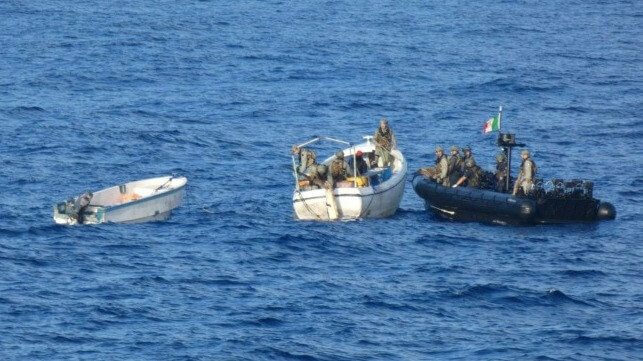UN’s Contact Group on Somali Piracy Changes its Mandate

The decline in piracy off the coast of Somalia is one of the recent success stories for the maritime industry. It has demonstrated how stakeholders can unite to solve some of the complex challenges facing the industry.
At the helm of this anti-piracy success is the Contact Group on Piracy off the Coast of Somalia (CGPCS). The CGPCS was created in 2009 following a UN resolution to coordinate political, military, industry and non-governmental efforts to end piracy along the Somali coast. The Contact Group has over 80 member organizations drawn from governments, NGOs and shipping companies.
In January, CGPCS members held their 24th Plenary Session in Kenya. The main question on the table was whether it was time for CGPS to fold up. Alternatively, how could the contact group re-align to address other emerging issues within the Western Indian Ocean?
Although Somali piracy may be on the decline, the rise in IUU (illegal, unreported and unregulated) fishing and drug trafficking, pose considerable potential for another wave of maritime insecurity within the Western Indian Ocean seaboard. The Northern Mozambique insurgency has also been a major source of concern for maritime players.
Unfortunately, for frameworks such as CGPCS, they were created purposefully for anti-piracy efforts. Going forward, the Contact Group’s future lies in its ability to transform its antipiracy vision into a holistic maritime security strategy. Piracy and armed robbery at sea are consequences of other factors, primarily governance gaps in land and marine resources.
In the last CGPCS meeting, a report prepared by the Republic of Seychelles, the chair of CGPCS’s Strategic Planning and Steering Working Group, entailed a proposal on how to develop a new strategic vision that aligns with emerging threats within the broader Western Indian Ocean region.
As a result, CGPCS agreed to change its name to the Contact Group on Illicit Maritime Activities in the Western Indian Ocean.
However, some analysts believe the name change may not serve the needs of the shipping industry.
“Drug smuggling and illegal fishing in the Western Indian Ocean are two most likely problems for coastal states that CGPCS could address - but these aren’t the issues the shipping industry is prioritizing. That could be problematic. If the industry is disengaged from this initiative, it could undermine the Contact Group’s credibility as a viable institution for enhancing maritime security,” argues Timothy Walker and Christian Bueger in a recent article.
Another challenge is how CGPCS will expand its mandate into a comprehensive platform without taking on too much.
“The group could consider modelling itself on successful formats used in other regions such as the Shangri-La Dialogue in Asia and Munich Security in Europe,” recommend Walker and Bueger. Both of these platforms enjoy sweeping support as frontiers of peace and security policy in their respective regions.
Indeed, the group’s mandate change is welcome, as it can help accelerate policy action for Western Indian Ocean on maritime security at the AU (African Union) and UN. If properly structured, it could also harmonize multiple efforts on maritime domain awareness by states, regional and international organizations.
No comments:
Post a Comment